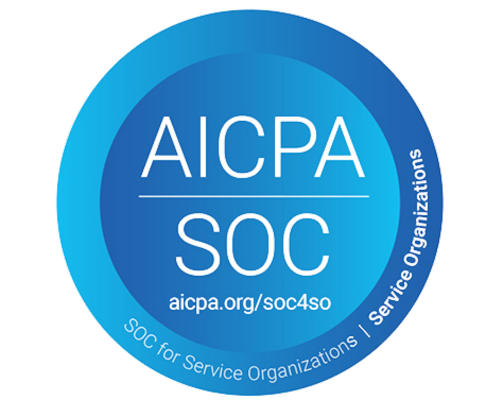Under the Microscope: I-9 Audits Tighten on Construction, Agriculture, and Hospitality

High-Risk Industries Will Face Increased I-9 Enforcement in 2025
With the new Republican administration taking office, industries like construction, agriculture, and hospitality are under heightened scrutiny for I-9 compliance. These sectors, which often employ high numbers of undocumented workers, will see increased enforcement actions as part of the administration's focus on immigration control. Businesses must proactively address compliance risks to avoid hefty penalties and operational disruptions.
Why the Spotlight on These Sectors?
Construction, agriculture, and hospitality have long been areas of focus for enforcement due to their reliance on temporary and undocumented labor. These industries are often seen as high-risk for compliance lapses, making them prime targets for audits and investigations by the U.S. Immigration and Customs Enforcement (ICE). Penalties for violations, such as incomplete or incorrect I-9 forms, can be significant, with fines ranging from $281 to $2,789 per infraction depending on the offense and recurrence. Recent enforcement trends highlight a growing emphasis on ensuring compliance in these sectors to address hiring practices and employment verification challenges.
Compliance Challenges in 2025
The updated Form I-9 (effective August 2023) and new remote verification procedures pose significant challenges. Errors such as late completion, missing signatures, or using outdated forms can lead to fines. Furthermore, businesses relying on virtual inspections must meet stringent guidelines, including properly marking forms to comply with DHS's alternative procedure rules.
Steps to Ensure Compliance
- Conduct Internal Audits: Regularly review existing I-9 records to correct errors and ensure completeness. This practice also prepares businesses for potential ICE audits.
- Implement Updated Policies: Adopt the latest Form I-9 and align internal hiring policies with federal requirements. This includes using electronic I-9 solutions to minimize manual errors.
- Train HR Staff: Provide training on the revised Form I-9 and acceptable documentation, emphasizing the three-day completion rule and anti-discrimination protocols.
- Leverage Technology: Employ automated compliance tools to streamline verification processes and track deadlines for re-verifying employees with expiring work authorizations.
Spotlight on
Construction
Construction firms face significant fines for the misclassification of workers and incomplete documentation. Research indicates that one-third of construction workers in Southern states such as North Carolina and Texas have been misclassified.
Unlike employees, independent contractors do not require Form I-9s. Misclassifying employees as independent contractors can result in employers skipping the I-9 process entirely, which constitutes a clear violation of compliance rules.
If an ICE audit uncovers misclassified workers and finds that I-9 forms were intentionally avoided, the company may face enforcement actions and substantial penalties.
The construction industry remains a prime target for I-9 audits due to its reliance on temporary and migrant labor. Many construction businesses struggle to maintain complete and accurate I-9 records, leaving them vulnerable to ICE enforcement.
In 2025, employers must ensure that:
- Workers' documents are thoroughly reviewed and verified for authenticity.
- Remote workers or subcontractors are properly accounted for under I-9 rules.
ICE audits have also revealed gaps in oversight when managing large, dispersed workforces, such as subcontractors or temporary crews. To mitigate risks, firms should prioritize consistent training, record-keeping, and regular internal audits to ensure full compliance with federal regulations.
Spotlight on Agriculture
The agricultural sector faces significant risks from seasonal worker turnover and the failure to re-verify expiring work authorizations. With its heavy reliance on seasonal labor programs such as the H-2A Visa Program For Temporary Workers, compliance challenges are heightened, especially given the complexity of managing large, transient workforces. Despite these programs, a 2022 report by the Center for Migration Studies estimates that 45% of all U.S. agricultural workers are undocumented. These figures suggest that a significant portion of the agricultural labor force comprises undocumented workers, though the exact percentage may vary depending on the data source and methodology.
With increased enforcement in 2025, farms are advised to:
- Conduct audits on current employees to ensure their records are accurate and complete.
- Use the E-Verify system, which is mandatory for agricultural employers in some states.
According to recent updates, ICE is focusing on identifying farms that fail to re-verify workers whose work authorization has expired. Employers are also encouraged to implement digital I-9 systems to manage large, dispersed workforces effectively.
Spotlight on Hospitality
High turnover rates in the hospitality industry frequently lead to inconsistent recordkeeping and an increased risk of fraudulent documentation. In sectors such as hotels, restaurants, and event-based staffing, the transient nature of the workforce makes it challenging to maintain accurate and complete I-9 records. ICE audits often reveal systemic issues in these businesses, including poor I-9 compliance and, in some cases, the reliance on fraudulent documentation.
Recent enforcement trends emphasize that hospitality businesses, particularly larger chains and franchises, are at greater risk of audits. For example, ICE has targeted employers who fail to implement proper I-9 practices in industries with high concentrations of unauthorized workers.
To mitigate these risks, hospitality businesses in 2025 must:
- Train HR teams to recognize and address fraudulent documents, following the latest DHS guidelines on acceptable verification practices.
- Conduct regular internal audits of I-9 records to identify and correct inconsistencies or incomplete documentation, a common issue in high-turnover environments.
- Implement digital I-9 systems to streamline recordkeeping and reduce the likelihood of errors or lapses due to frequent staff changes.
- Standardize onboarding processes across locations to ensure compliance with federal requirements, particularly for multi-location chains or franchises.
Moreover, ICE encourages participation in programs like the IMAGE program (ICE Mutual Agreement between Government and Employers), which provides resources to improve hiring and employment verification practices. Businesses that adopt proactive compliance measures can reduce their vulnerability to audits and penalties while ensuring a more secure and reliable workforce.
Risks of Non-Compliance
Failing to meet I-9 compliance standards can have serious consequences, including:
- Financial Penalties: Employers can face steep fines for paperwork violations, ranging from minor errors on Form I-9 to knowingly employing unauthorized workers. Repeat offenses or systemic issues can lead to even more substantial penalties.
- Operational Disruptions: ICE enforcement actions, such as audits or raids, can disrupt daily operations, strain resources, and harm employee morale. Additionally, negative publicity from these actions can severely damage a company’s reputation.
- Legal Risks: Non-compliance may result in lawsuits, including discrimination claims under the Immigration and Nationality Act (INA), particularly if hiring practices or verification processes appear to unfairly target certain groups.
Final Thoughts
As enforcement intensifies, businesses in high-risk industries must adopt proactive strategies to stay ahead. Remaining informed about regulatory changes is essential to avoid compliance pitfalls. Technology offers significant advantages in simplifying employment verification, reducing errors, and ensuring records are up-to-date. Regular internal audits further provide an opportunity to address potential gaps before an external investigation arises. By prioritizing these measures, companies can not only mitigate risks but also maintain a secure, compliant workforce and protect their reputations.
Clear I-9, powered by HRlogics, offers a comprehensive suite of solutions to simplify and enhance the compliance process. With expert-assisted verification services and live video verification, Clear I-9 ensures accuracy and adherence to DHS procedures, even for remote hires. The platform’s robust tools streamline large-scale I-9 audits, significantly reducing administrative burdens and mitigating risks. By integrating Clear I-9 into their operations, businesses can focus on their growth while confidently addressing compliance challenges.
To learn more about how Clear I-9 can safeguard your business from penalties and disruptions, schedule a demo today and take the first step toward worry-free compliance.
Have Questions or Need More Information?





